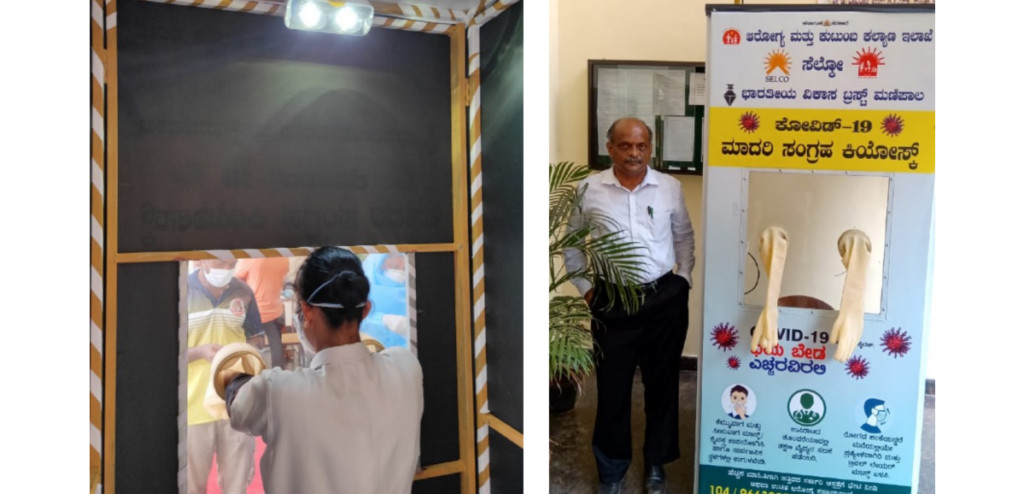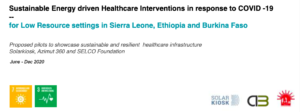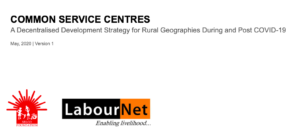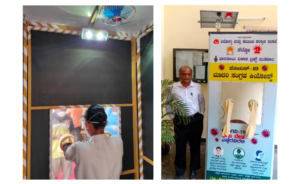India has seen a rapid increase in the cases of COVID-19 infected persons, reporting almost 90,000 confirmed cases on 16th May 2020. Each state in the country has been responding depending on its context. Some states have had success in flattening the curve and see the cases in decline with every passing day, whereas in others there has been no signs of slowing down. Testing, contact tracing and quarantine have proved as important measures across the globe. Since the past few weeks, India has been increasing its testing capacities. Walk-in sample Kiosks (WISK) are being scaled rapidly and deployed in wide variety of settings across the different states. These are being set up primarily in easy to access public spaces. With scarce resources, India has found it important to have portable and mobile sample collection units- allowing for one infrastructure to serve multiple neighborhoods or geographies.
Sample collection requires has to be done carefully, and the healthcare worker needs to be in a PPE suit, ensuring that he/she is protected from the risk of contracting the virus. With peak summer approaching India, it has been found important that the healthcare workers are provided with a comfortable working environment- making energy an important component of that for light and fan. With the kiosk being mobile, it is also important that the energy source is made mobile- allowing the healthcare worker to be comfortable wherever the WISK is operating from.
Intervention
Udupi town is about 90km from the Mangalore International Airport. With the airport recently opened with limited flights, the Udupi district has been improving its testing infrastructure since many Indians from other countries will be coming back to their home towns in the coming weeks. In addition to having testing done in labs or COVID designated hospitals, the health department in Udupi also commissioned Solar Powered Mobile Sample Collection Units. The initiative improved the outreach of the testing facility, but still had its limitations. Udupi district cater to a population of 11.77 lakh people and have health infrastructure comprising of around 24 Primary Healthcare Centres (PHC). A single mobile unit was not able to serve the need across the different villages and PHCs. In terms of testing, the mobile unit was able to collect only 60 to 70 Samples per day.
The health department in the district has been determined towards aggressively improving its testing capacity which needed necessary testing units in more PHCs and public spaces. That lead to idea of a portable and cost-effective WISK, a WISK which was Solar Powered with one Fan, Light and a Mobile charging unit. It is designed as a small cabin that is closed from four sides with one side having a glass wall with an opening. The person being tested is seated outside the glass wall through which two rubber gloves are attached outside. The health worker has to insert a hand in the rubber gloves and collect swab samples and blood samples from the patients. The rubber gloves and the cabin is disinfected after each sample collection.
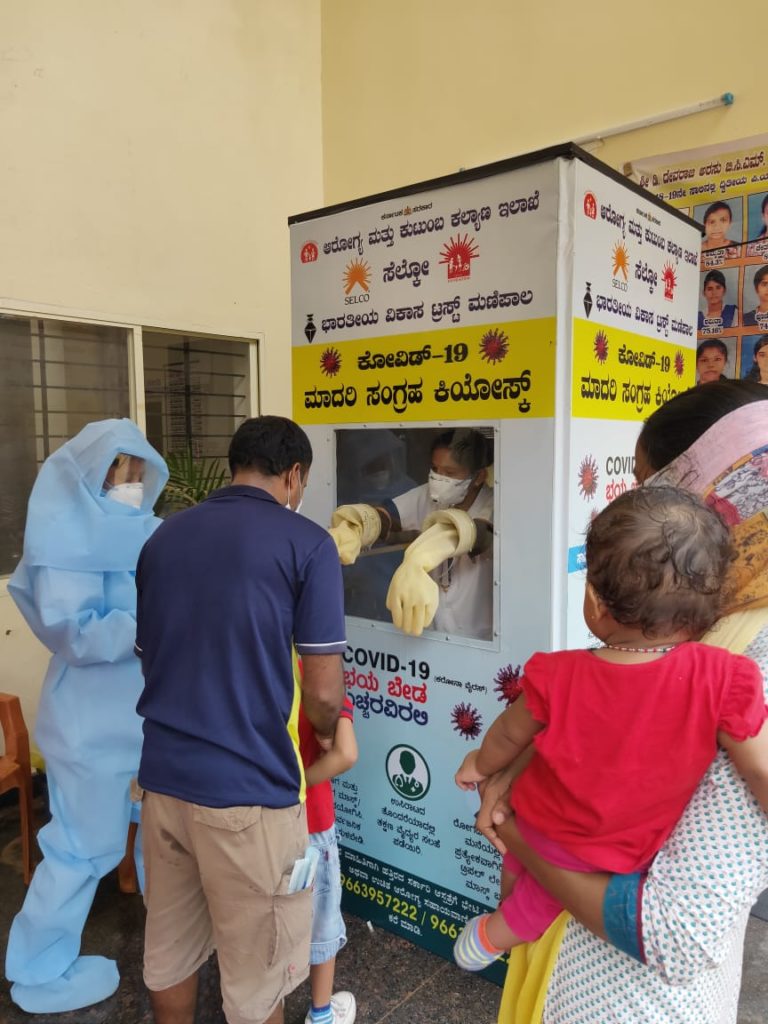
Solar Powered Walk-in Sample Kiosk (WISK). A project developed jointly by Bhartiya Vikas Trust, SELCO India and Dr Nagbhushan Udupa from District Health Department.
Impact
Aided in Carrying out Mass Testing: WISK was a more affordable and easier way to collect samples, as it takes no more than just two minutes to collect samples, and requires minimum investment in the infrastructure that provides a safe mode of sample collection.
Ensured Safety of Frontline Health Caregivers: With increasing cases being reported across the country – it’s a tool in the hands of the frontline medical staff who can undertake mass testing whereby their personal safety and well-being is ensured through the equipped booths.
Cost of Infrastructure: The Kiosk costed INR 24000/- for set up (including the cost of the solar energy system for light, fan and mobile charging). In comparison, the cost of other solutions ranges from INR 35,000 to INR 90,000- these are not portable and without solar powering, which makes the WISK implemented in Udupi a unique, portable and cost-effective model.
Savings on PPE Suits: The health facility also has potentially saved on the use of the PPE suits which are not only cumbersome but also cost cost INR 1000-1400 apiece. According to Dr. Nagbhushan at the Health Department, a comparison between the cost of PPE suits and the WISK kiosk, shows that WISK is a far more efficient use of resources- ensuring savings for the health department within a week of operations of the WISK.
